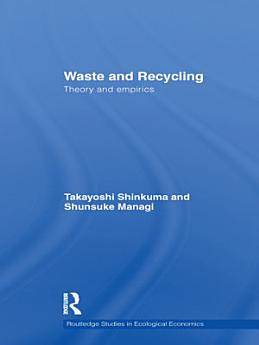Waste and Recycling: Theory and Empirics
About this ebook
The book also raises thoughtful questions on how household waste management services should be privatized and who should pay for the disposal and recycling costs. It attempts to answer these questions. The book considers several factors hindering the first-best optimal outcome and highlights two crucial ones. It elaborates further with models and the solutions on how to overcome these obstacles.
The book covers not only traditional resource economics and waste management, but also the recent problem of Electric waste (E-waste) and illustrates in details, how the environments of developing countries are inevitably polluted even with the Basel ban Amendment in place. The book proposes an alternative international trading regulation to address E-waste. This book will certainly appeal to industry decision-makers, policy makers and legislators.
About the author
Takayoshi Shinkuma has been with the faculty of economics of Kansai University since 2008. He taught at Gifu Shotoku Gakuen University and Tokyo University of Foreign Studies. He holds a Ph.D. in human and environmental studies from Kyoto University. Professor Shinkuma researches on environmental economics, specifically in waste managment and recycling.
Shunsuke Managi is Professor of Technology and Policy, School of Engineering at Kyushu University, Japan, while also holding position as IGES fellow at Institute for Global Environmental Strategies and an Adjunct Professor at the University of Tokyo. He is an editor of Environmental Economic and Policy Studies, a lead author for the Intergovernmental Panel on Climate Change, and is the author of "Technology, Natural Resources and Economic Growth: Improving the Environment for a Greener Future" and editor of "The Routledge Handbook of Environmental Economics in Asia".






